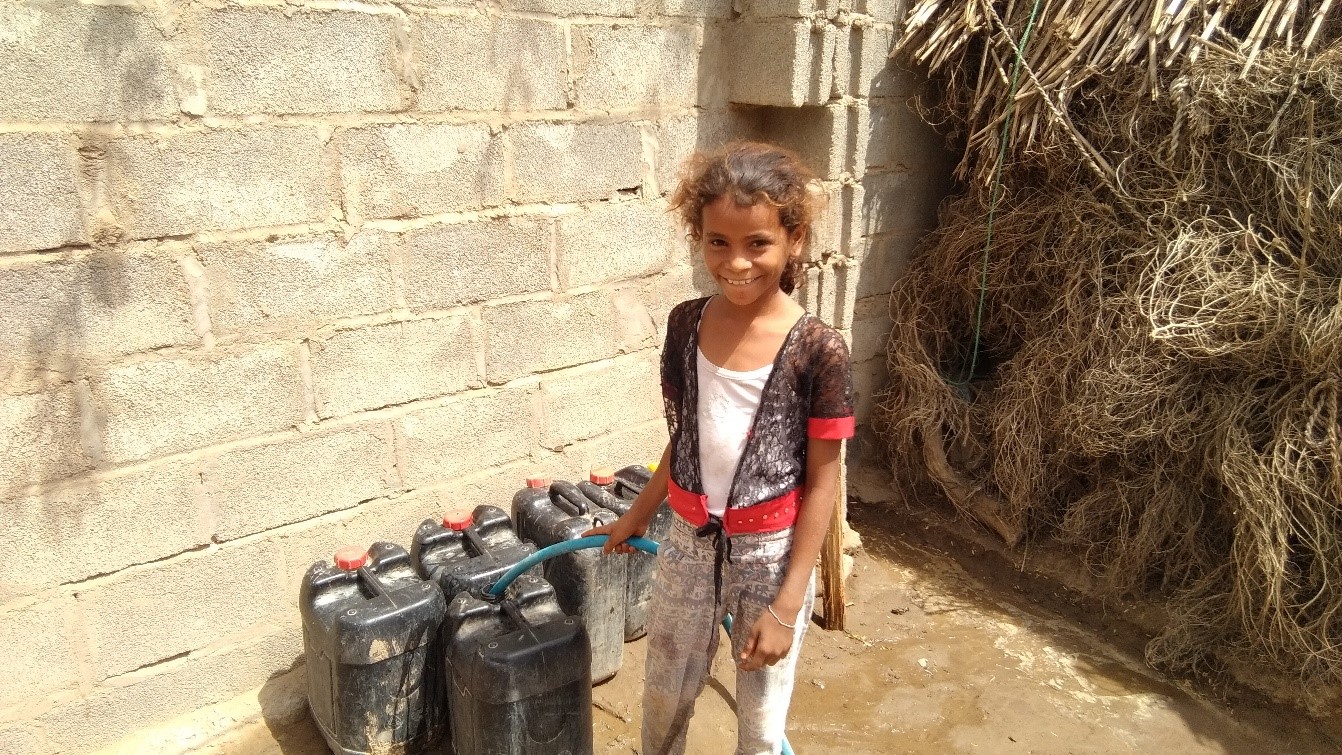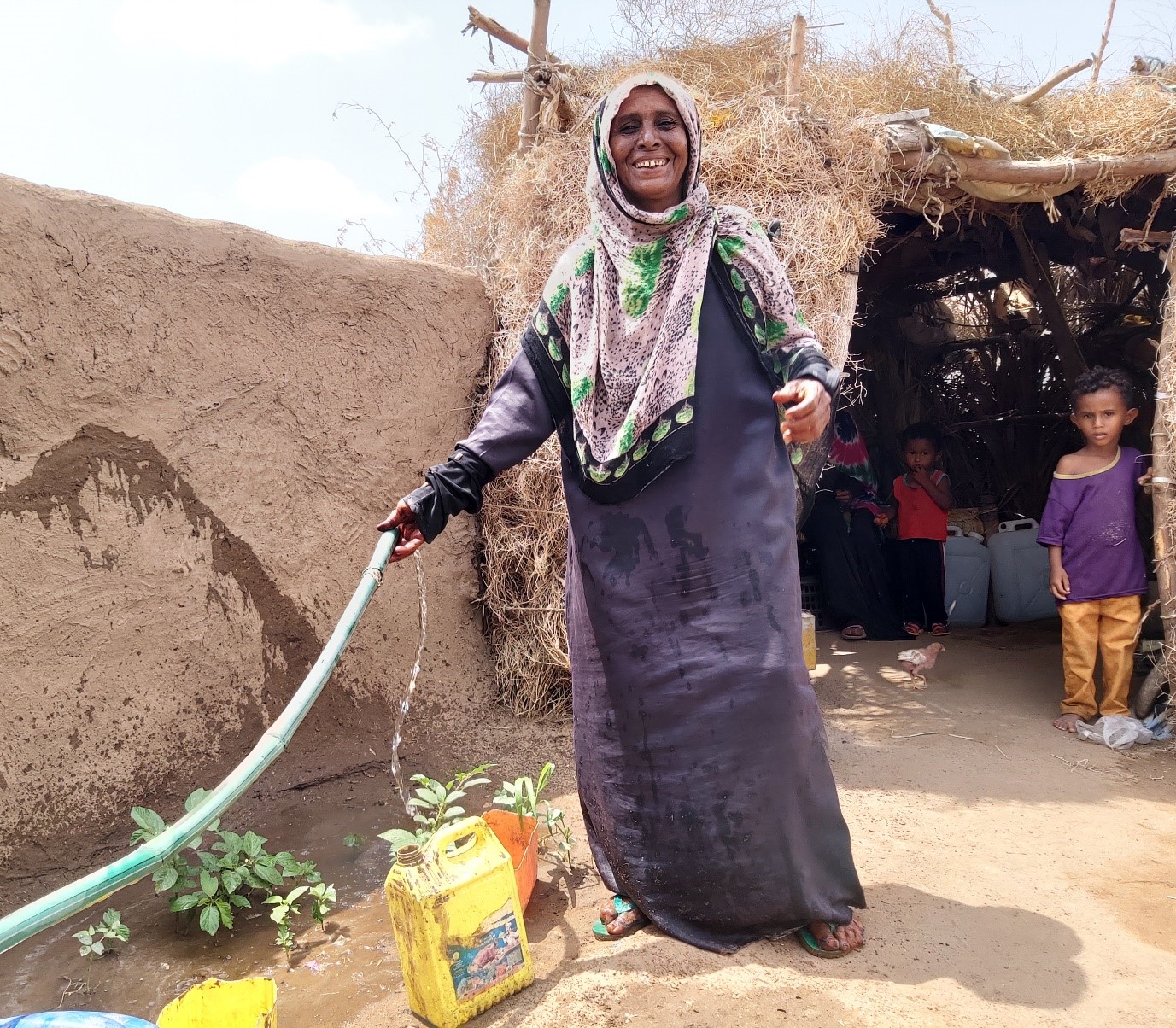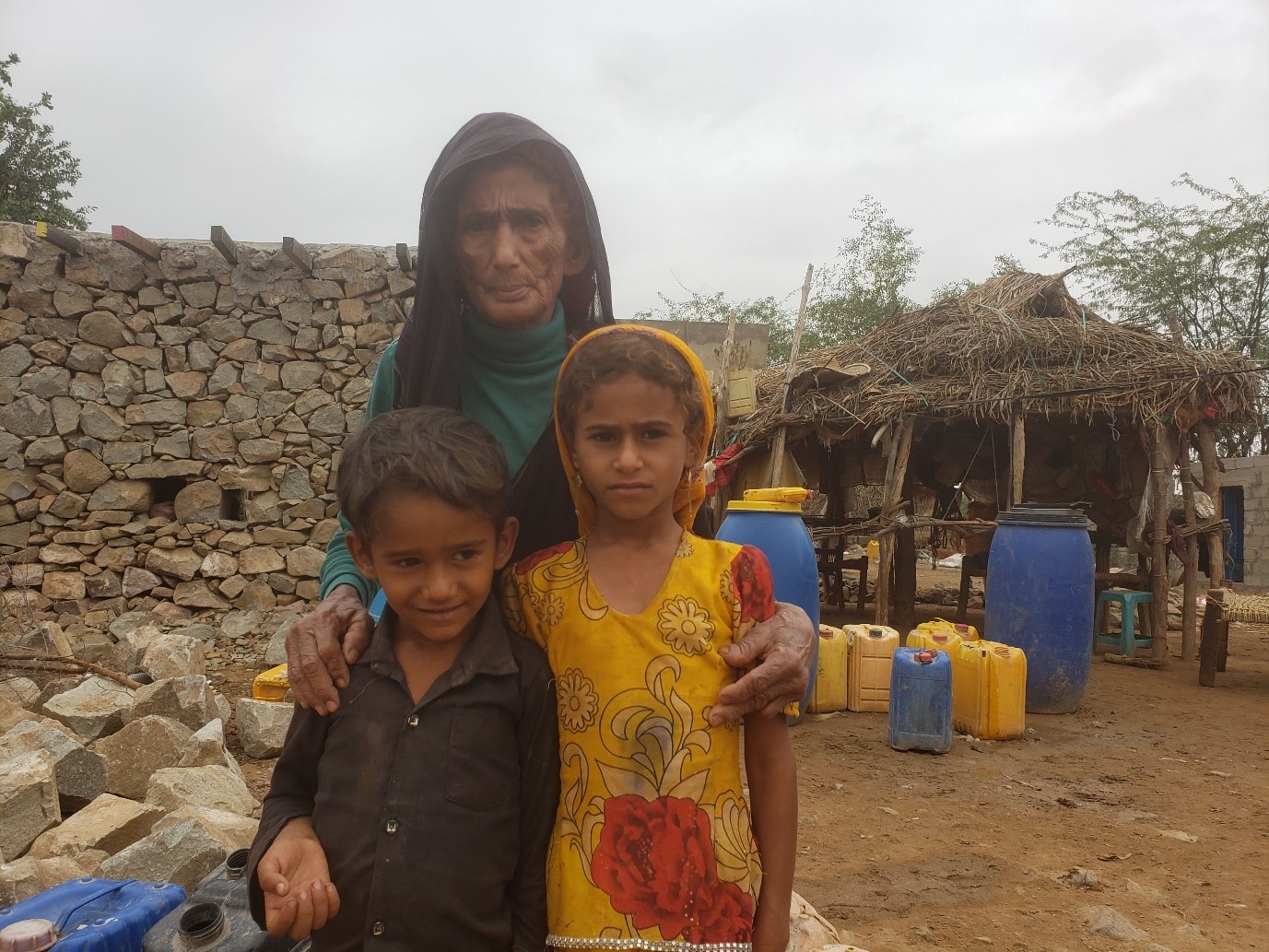Nearly two-thirds of Yemeni people lack access to clean water and sanitation services. 20.5 million Yemenis require support to meet their basic water, hygiene and sanitation needs, 11.2 million of whom are in acute need. The burden of fetching water often falls on women and girls who must walk long distances every day to reach water sources, leaving them vulnerable to many risks along the way.
Since the escalation of war in 2015, public services in the country have significantly deteriorated, and most water systems in Yemen’s famine-risk districts became heavily reliant on humanitarian assistance for fuel and maintenance. People are increasingly resorting to unimproved water sources and sometimes even fight over available water.
In the west of Yemen, Nada, a bright 10-year-old girl, lives in Al Meghlaf district of Hodeidah governorate. Nada is the eldest child in her family, which makes her responsible for providing water for the whole family. The village’s water system stopped working a long time ago, and so the majority of the villages have to endure daily journeys to fetch water. This can be physically and emotionally painful as well as time-consuming and risky, especially for women and girls.
Nada’s father says: “I used to feel so sad while waking up my little girl early in the morning to go to fetch water instead of going to school. Nada used to walk for two kilometres across the valley to reach the nearest water well. After collecting the water, she had to load the donkey with four jerry cans to bring them home by noon. Nada had no time left for learning, playing, or being a child. The entire family relied on the water she brought.”
Like Nada, Nawar, a kind 13-year-old boy, missed classes when he became responsible for finding water for his family. Nawar lives in one of the poorest villages in Al Meghlaf district.
“I can’t believe how Nawar’s childhood has slipped away,” says Nawar’s father. “As his days revolved around fetching water, his performance in school was negatively affected by his frequent absence. He used to come home by noon, struggling with the weight of the jerry cans and the heat of the sun. His tiny body got tired of this hard work, and our health worsened because the collected water was often contaminated.”





